In this issue, Index on Censorship magazine explores the mixed reaction to the Soviet Union’s new policy of greater openness and “restructuring” proclaimed by the Gorbachev leadership.
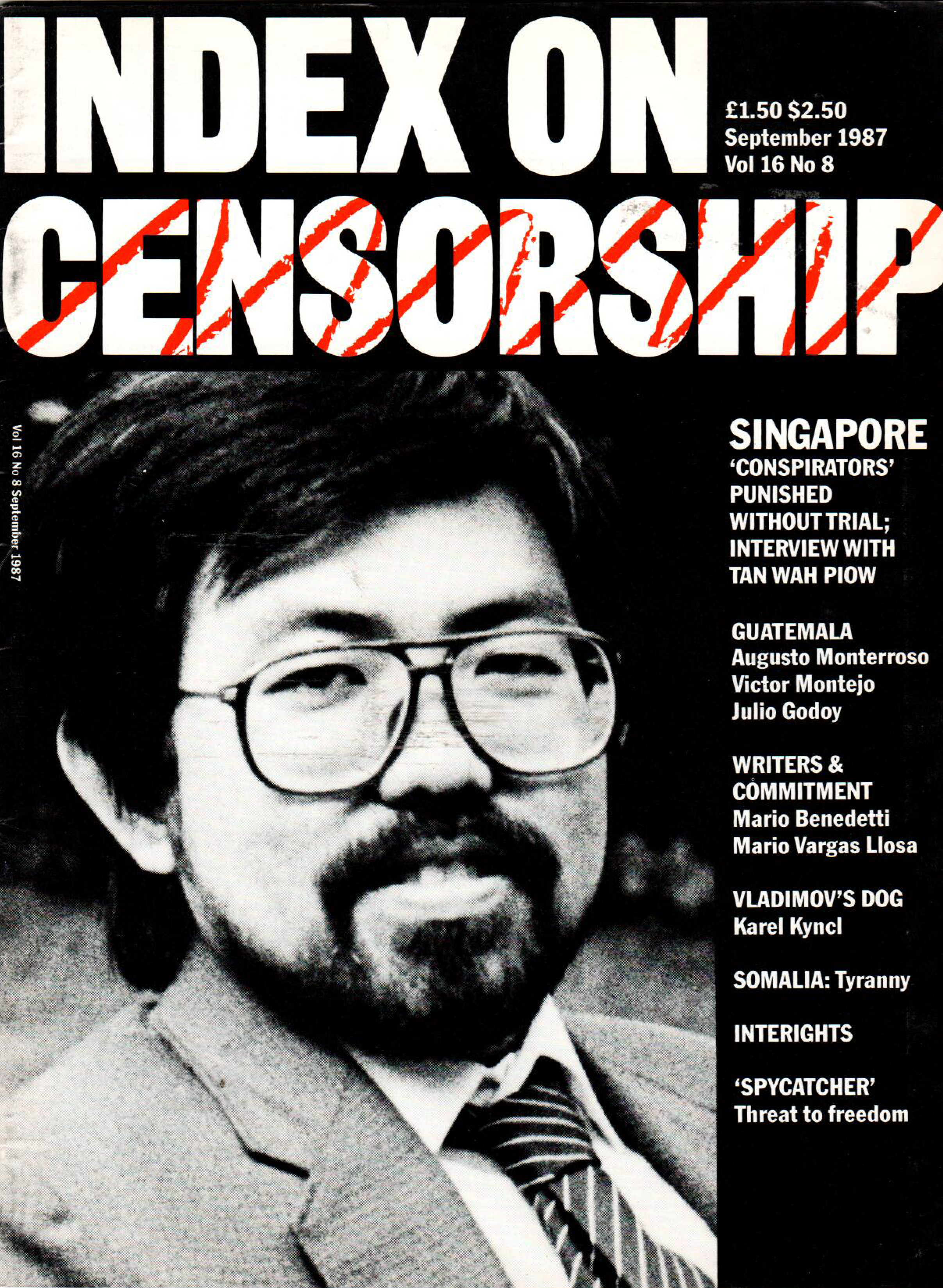

In this issue, Index on Censorship magazine explores the mixed reaction to the Soviet Union’s new policy of greater openness and “restructuring” proclaimed by the Gorbachev leadership.

In this issue, Index on Censorship magazine explores the mixed reaction to the Soviet Union’s new policy of greater openness and “restructuring” proclaimed by the Gorbachev leadership.
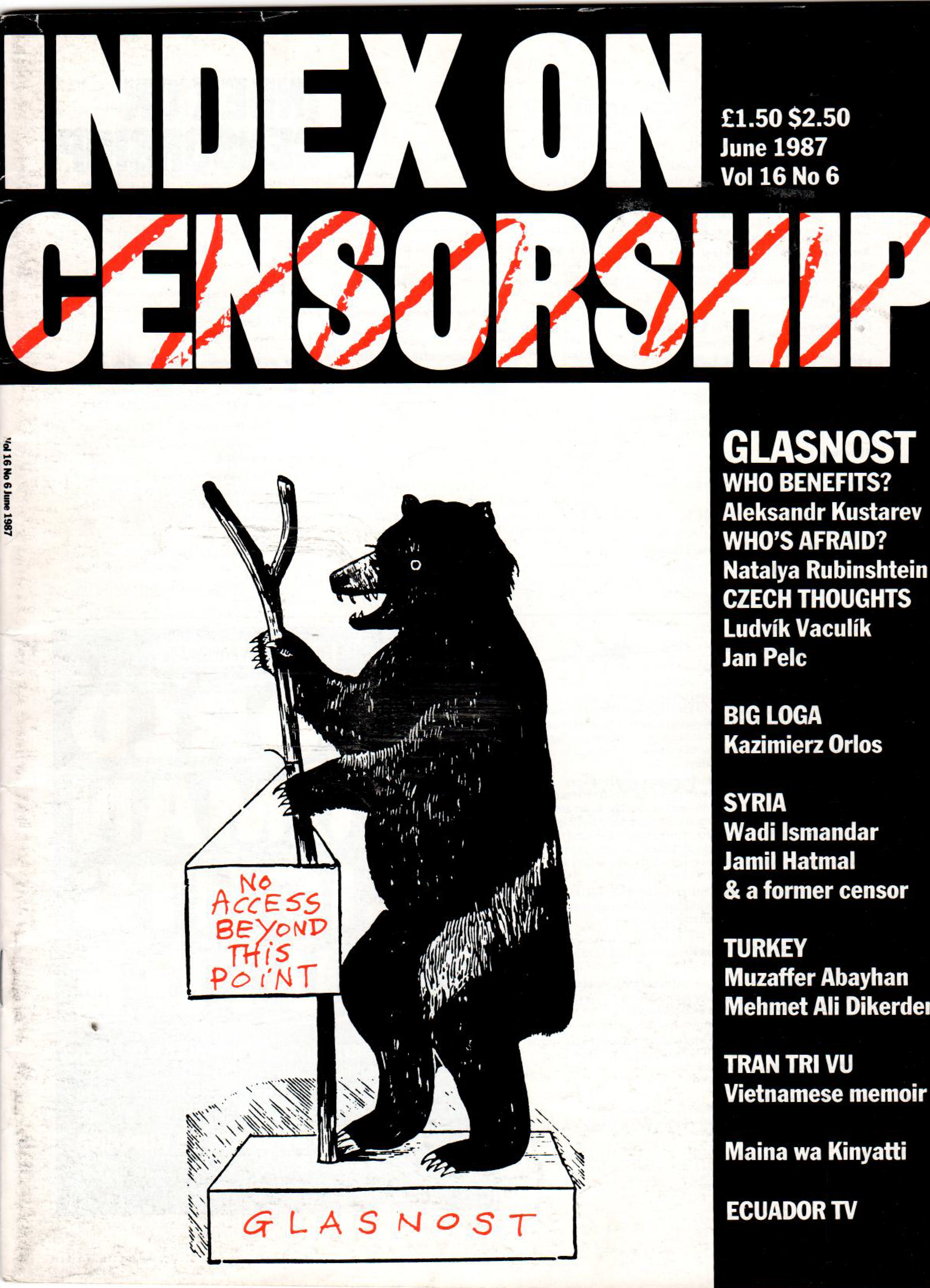
In this issue, Index on Censorship magazine explores the mixed reaction to the Soviet Union’s new policy of greater openness and “restructuring” proclaimed by the Gorbachev leadership.
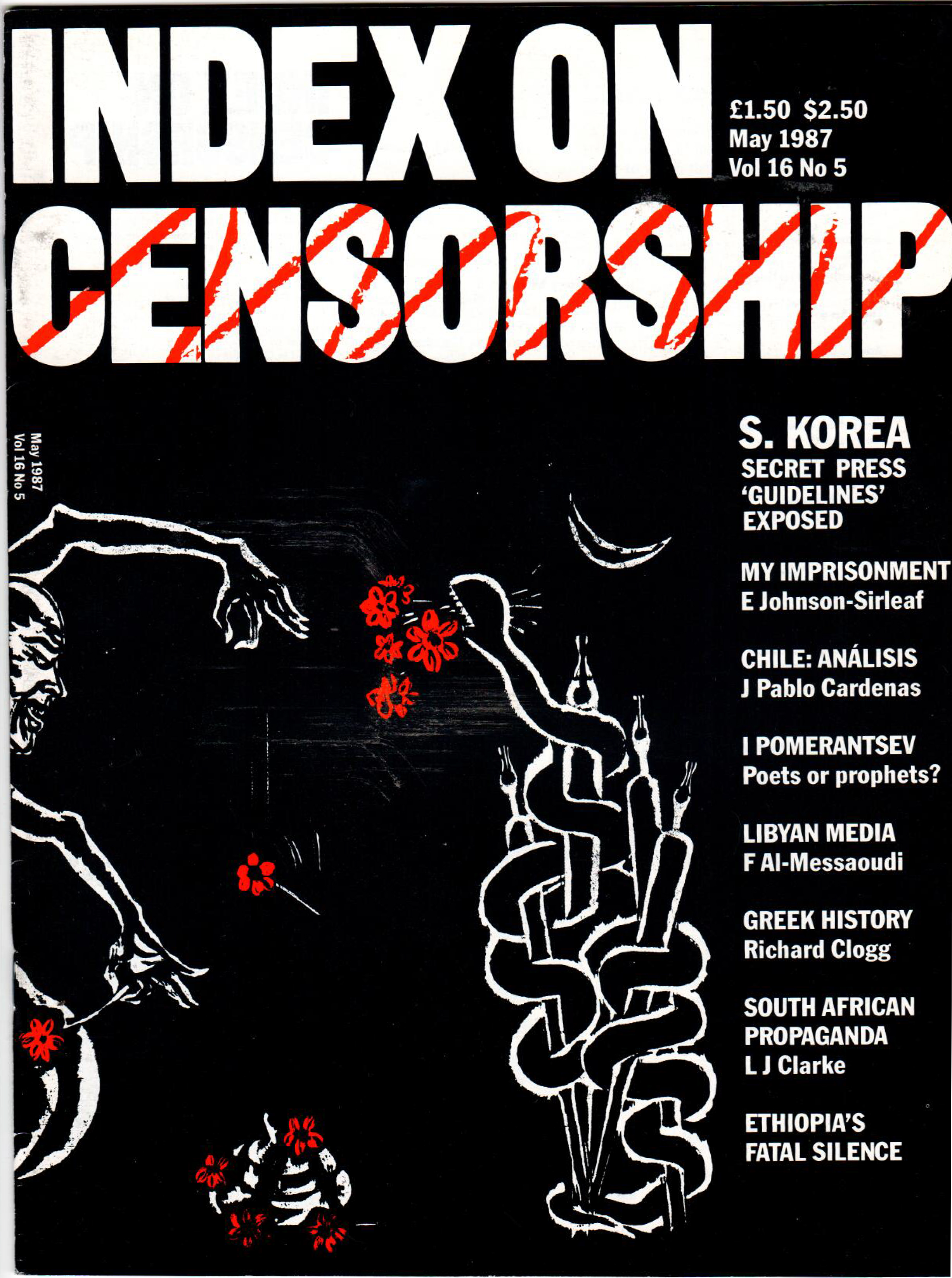
In this issue, Index reports the extent to which the South Korean government decides what appears in newspapers, and what is to be suppressed.
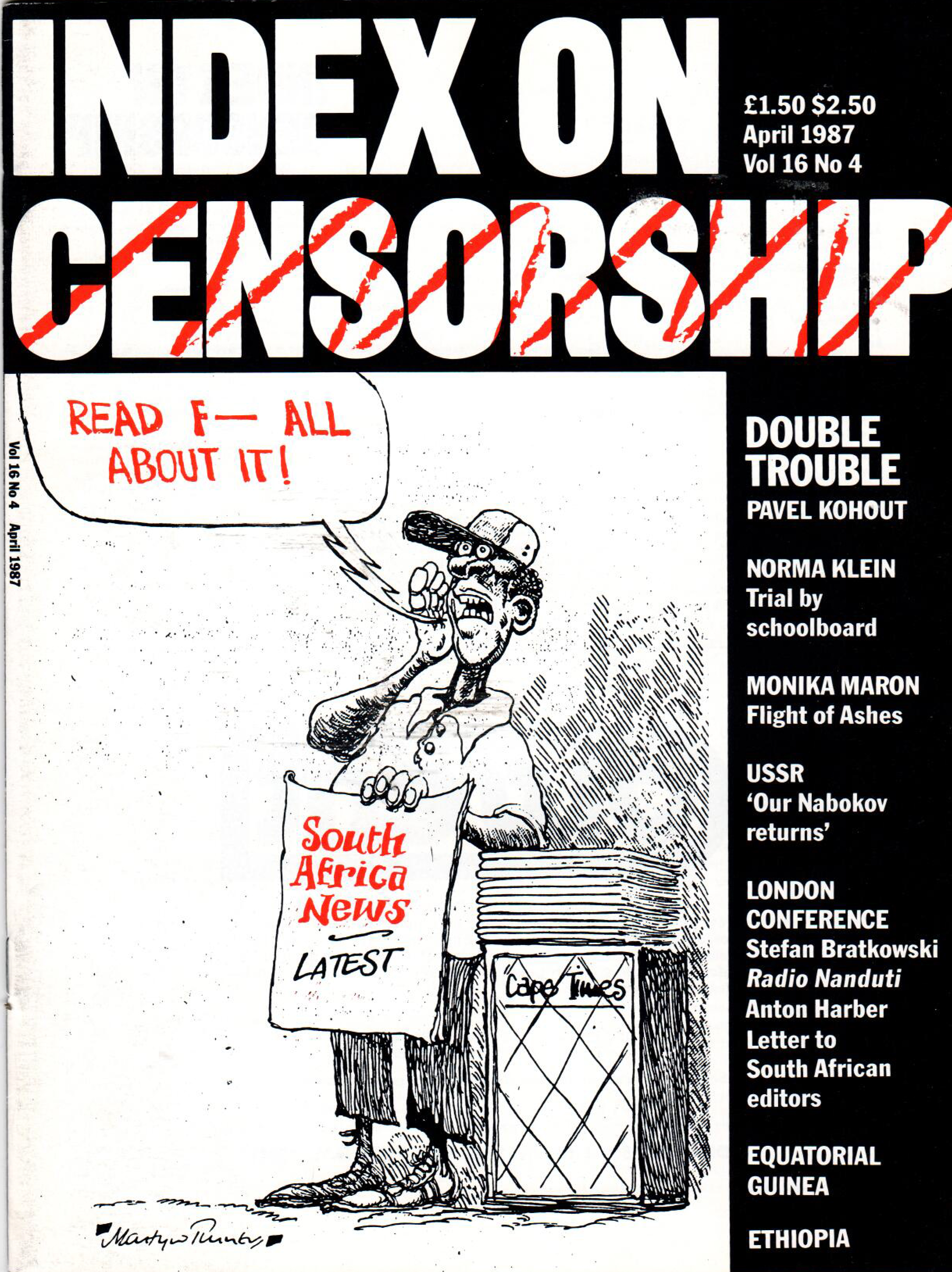
In this issue, Index has prepared a report on some of the major issues and solutions discussed at the World Press Freedom’s London Conference.
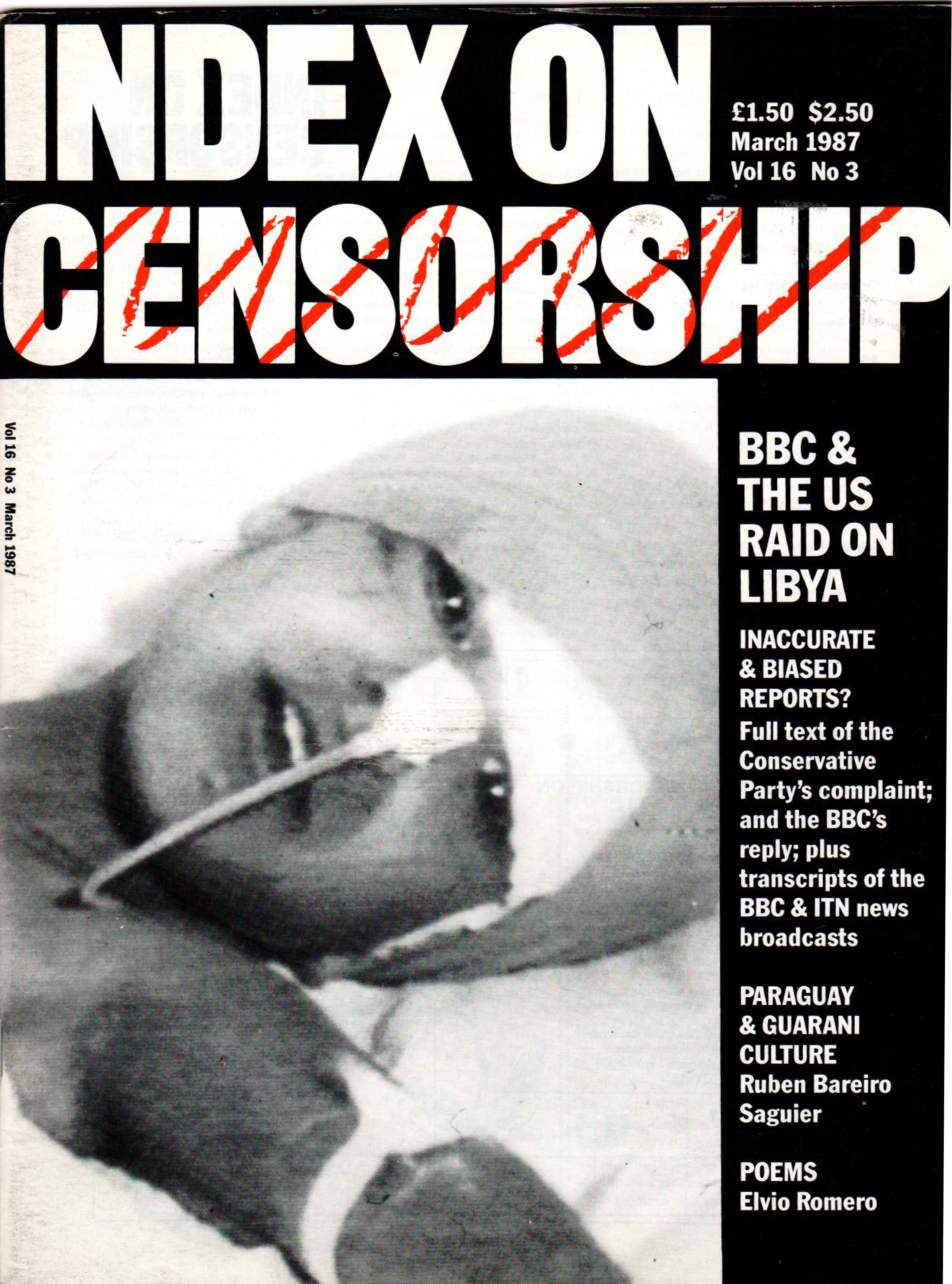
In this issue, Index examines whether the BBC’s coverage of the US raid on Libya was biased. This issue features full transcript of the BBC news broadcast.
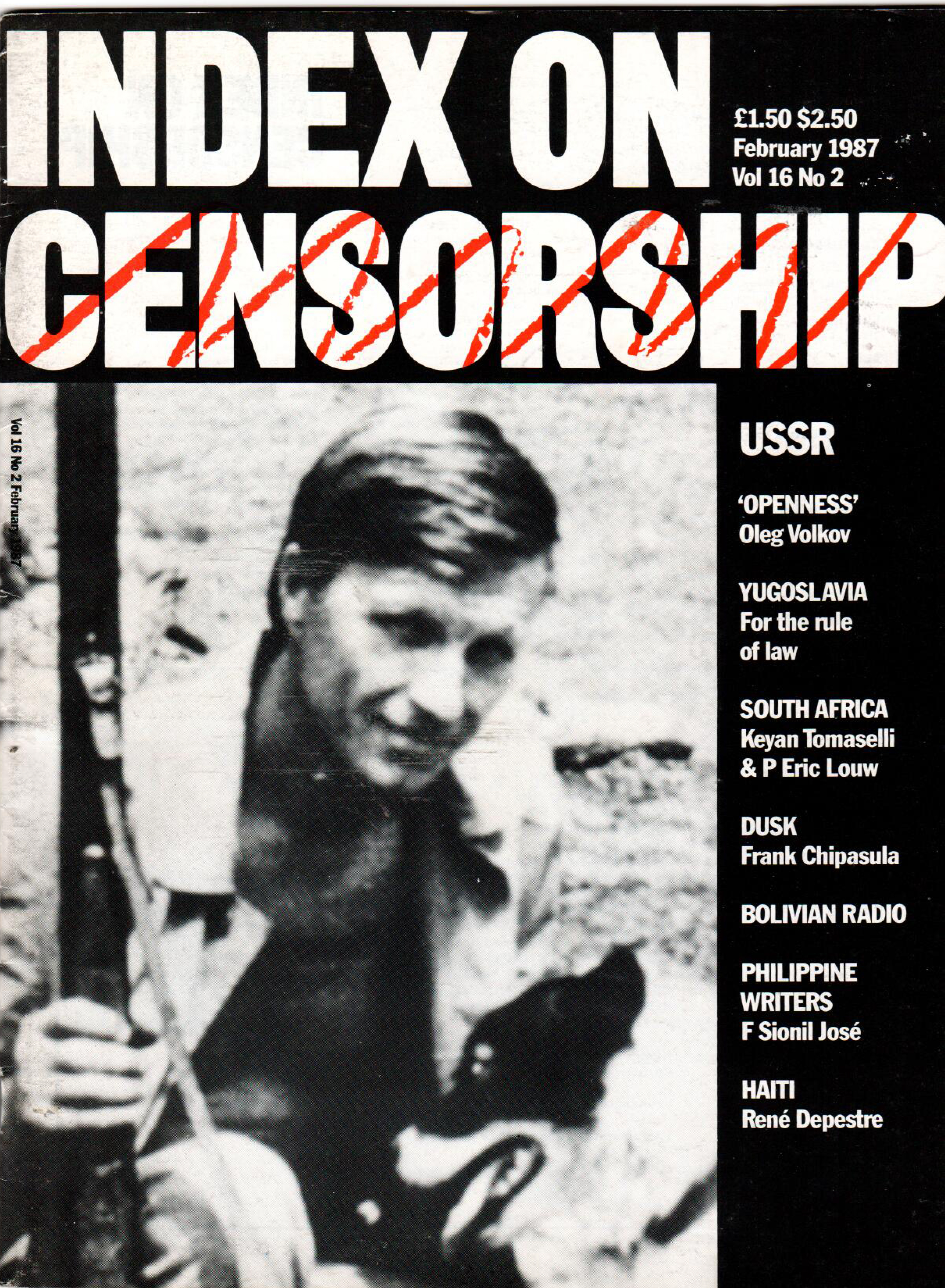
In this issue, Index on Censorship magazine explores the mixed reaction to the Soviet Union’s new policy of greater openness and “restructuring” proclaimed by the Gorbachev leadership.
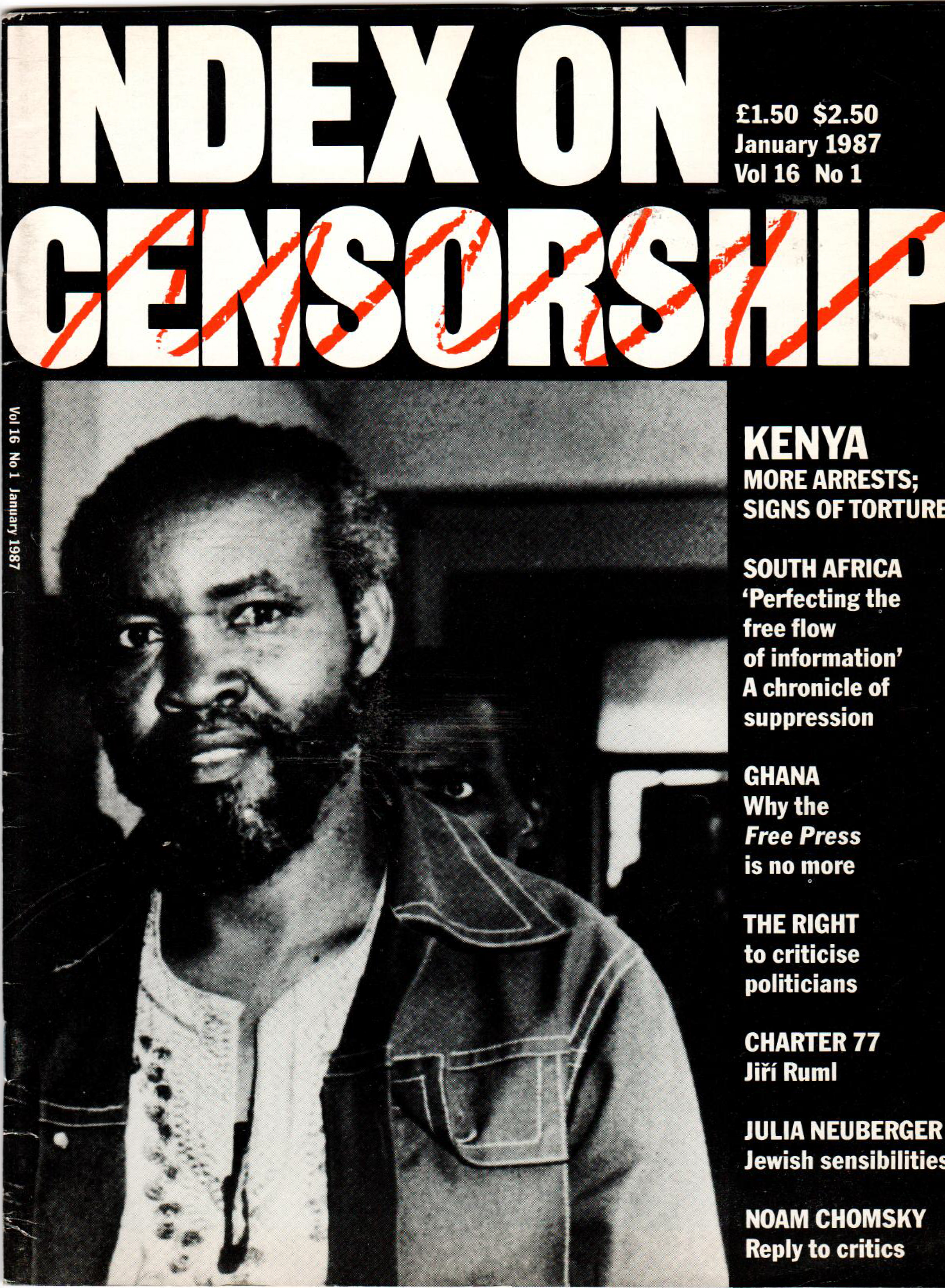
In this issue, Index examines the infringement of civil rights, particularly freedom of expression, in Ghana, Kenya, and South Africa.

In this issue, Index interviews Vaclav Havel, a playwright who has not seen his work performed in 18 years. His new play, Temptation, is in the issue.
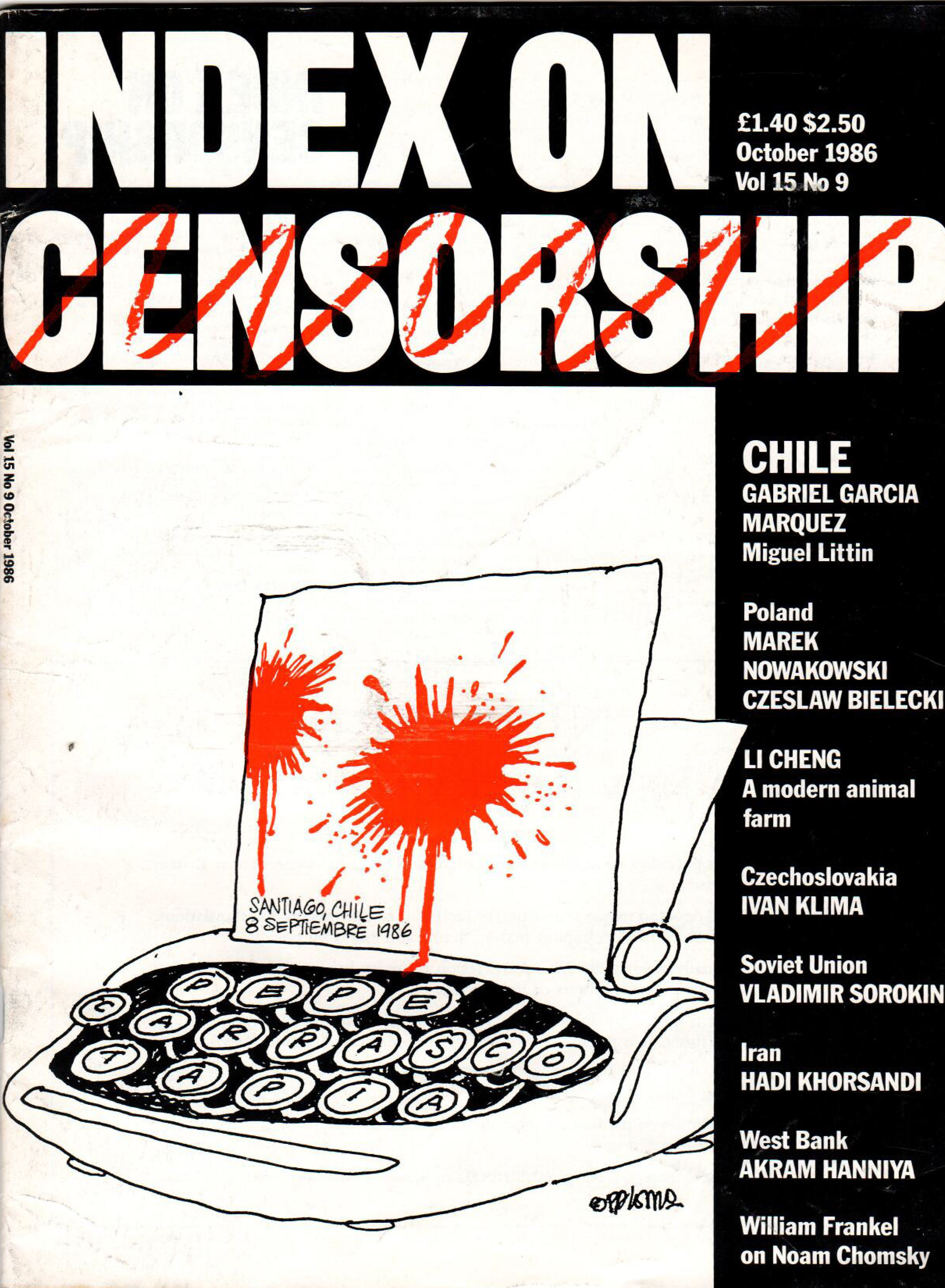
In this issue, Index examines the media crackdown spreading throughout the Chile in the wake of the September 7 attempted assassination of General Pinochet.
A quarterly journal set up in 1972, Index on Censorship magazine has published oppressed writers and refused to be silenced across hundreds of issues.
The brainchild of the poet Stephen Spender, and translator Michael Scammell, the magazine’s very first issue included a never-before-published poem, written while serving a sentence in a labour camp, by the Soviet dissident Aleksandr Solzhenitsyn, who went on to win a Nobel prize later that year.
The magazine continued to be a thorn in the side of Soviet censors, but its scope was far wider. From the beginning, Index declared its mission to stand up for free expression as a fundamental human right for people everywhere – it was particularly vocal in its coverage of the oppressive military regimes of southern Europe and Latin America but was also clear that freedom of expression was not only a problem in faraway dictatorships. The winter 1979 issue, for example, reported on a controversy in the United States in which the Public Broadcasting Service had heavily edited a documentary about racism in Britain and then gone to court attempting to prevent screenings of the original version. Learn more.